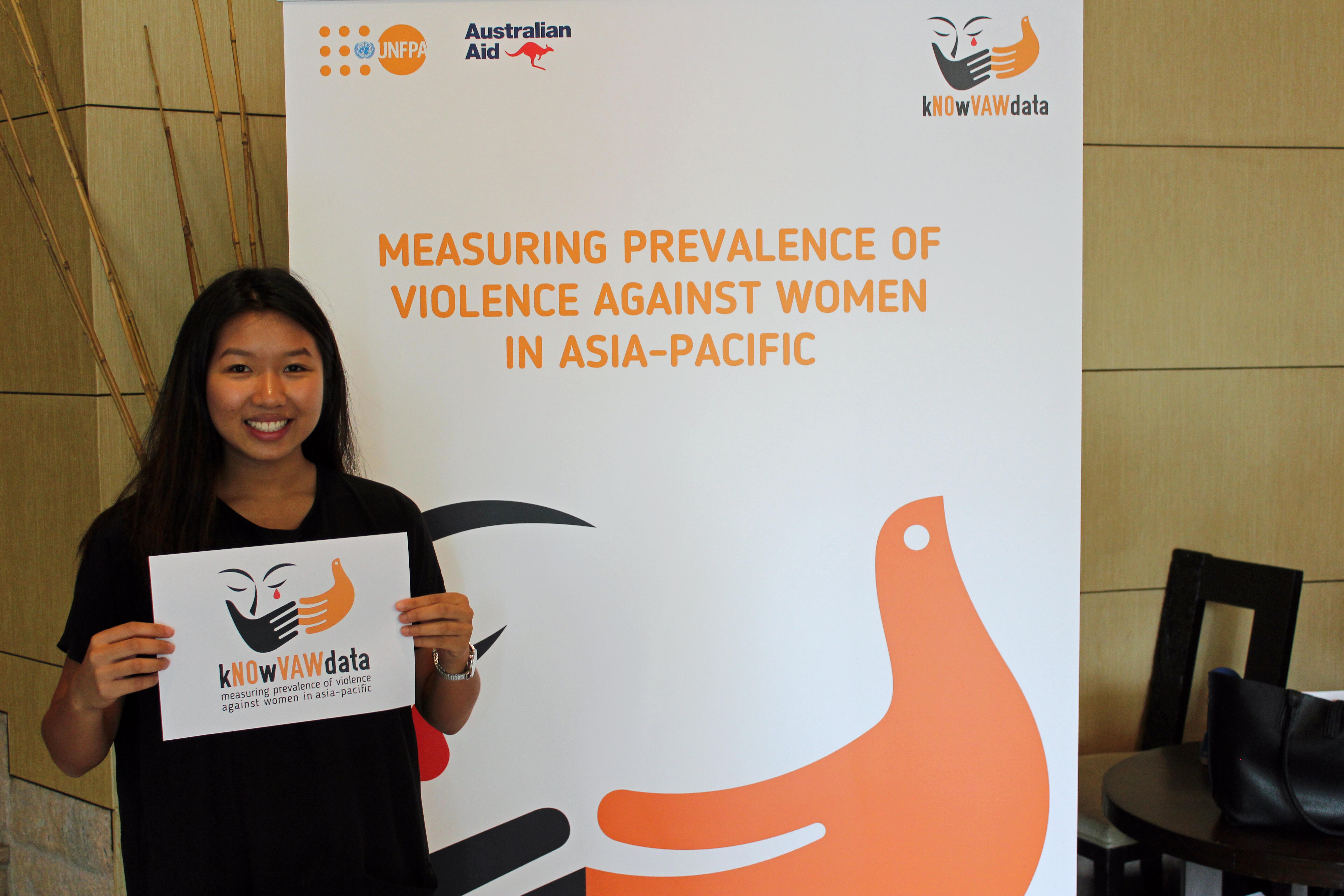kNOwVAWdata: Measuring the Prevalence of Violence against Women across Asia-Pacific
Bangkok – The United Nations Population Fund (UNFPA) Asia-Pacific Regional Office and the Australian Department of Foreign Affairs and Trade (DFAT) are launching a program that will help countries in the region to measure violence against women.
The initiative, titled kNOwVAWdata, will support countries in training researchers and field workers to collect and analyze data on the extent and the nature of violence that women experience, using robust and reliable methodologies. The initiative will also help countries use the collected data to bring about policy and behaviour change to stop violence against women.
“We have estimates that globally about one out of three women suffers physical or sexual violence at some point in her life, usually at the hands of her spouse or intimate partner,” explained Yoriko Yasukawa, UNFPA Asia-Pacific Regional Director.
“We’ve made progress in recent years in documenting this violence in a number of countries. Now, under this initiative, we’ll expand this work, ultimately benefitting millions of women, helping us move closer to fulfilling one of the most important targets under the Sustainable Development Agenda -- that of bringing about an end to the scourge of violence against women.”
In Asia-Pacific, surveys have indicated that between 15 percent and 68 percent of women have experienced physical or sexual violence, at the hands of an intimate partner, across different countries. While the extent of different forms of violence against women varies across countries, violence against women occurs in every society, at all levels of development, and happens to women of all status and backgrounds.
“Australia is delighted to be partnering with UNFPA in this vital endeavour,” Australia’s Ambassador to Thailand Paul Robilliard said.
“Reliable and robust evidence about the extent and nature of violence against women is a cornerstone of our response to this challenge both domestically and internationally. We need to have accurate data so we can provide the best possible services to women who have been subjected to violence. Having access to quality data reinforces the extent of the problem and the devastating impact violence has on individuals, families and communities. This helps us spur action to find causes and develop solutions.”
Australia has worked with UNFPA for more than 10 years in Asia and the Pacific to collect data on violence against women. Australia’s work in the region to eliminate violence against women takes a targeted approach while recognising the need to address violence at many levels.
“Surveys to measure violence against women are expensive and time-consuming, but they are the only way to get such stories, to count women who have experienced violence but are all too often afraid to speak out, and to give these women a voice,” noted Dr. Henrica Jansen, International Researcher on Violence against Women, UNFPA Asia-Pacific. “But this process must be properly and safely done by interviewers and researchers with the right training to ensure that the women surveyed are safe, and their confidentiality is respected.”
Violence against women is very much a hidden problem. Many women remain silent for a number of reasons. Their husbands (or other intimate partners) might beat them up again. Or they are afraid of not being taken seriously, or even of being blamed for having “provoked” the violence in the first place. These fears cause crippling isolation and guilt. The silence, stigma and prejudice involved often conceal the full extent of the crisis. Interviewers need special training and skills to help women summon the strength to tell their painful stories, to keep them safe and to provide necessary support and referral.
While factors contributing to violence vary in different country and social contexts, we know that experiencing and/or witnessing violence as a child is an important predictor of whether men will use violence in their adult relationships or women will become victims of intimate partner violence. Across all countries, gender inequality and unequal power relationships between women and men both drive, and are perpetuated by, violence against women.
Officials and statistical offices set to manage the surveys in all the kNOwVAWdata countries covered in Asia-Pacific will receive special training and support through the initiative to collect data on violence against women in the best possible way. The process and the quality of the surveys will be monitored and supported by UNFPA and a network of independent experts.
“In order to address the global pandemic of violence against women we need to understand it across all its aspects,” concluded Yasukawa. "In other words, we need to ‘know VAW data to end VAW”
Contacts
Roy Wadia / wadia@unfpa.org / +66 848 752 634 / +66 2 687 0111
Tim Jenkins / jenkins@unfpa.org / +66 2 658 6012



